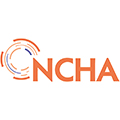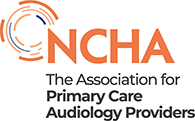30 March 2020
Hearing care provider update - 30 March 2020
At the NCHA, we are open seven days throughout the Covid-19 crisis. If you need us, contact us as usual at [email protected].
In this member Covid-19 update:
- Clinical and public health update
- Further guidance for hearing care providers – safe practice and finance update (including detail on the Coronavirus Job Retention Scheme)
- Financial support for self-employed audiologists.
|
Clinical and public health update – UK All routine hearing care has already been suspended and providers offering essential and urgent care should continue to adhere to official public health and sector specific clinical advice. Please refer to our 23 March update for links to public health and clinical guidance. At this stage, public health authorities are reviewing personal protective equipment (PPE) guidance for healthcare settings and we will forward this as soon as it is published. |
|
Further guidance for hearing care providers
Safe practice The UK government has confirmed that audiology clinics are exempt from general retail closures. If you are providing essential and urgent care you should keep up-to-date with official government guidance for employers and businesses on Covid-19 and keep clinical teams up to date with current public health and clinical guidance on Covid-19. |
|
Finance update We set out the wide range of financial support that is available for hearing care providers in our 23 March update, which you can still access. The government has now published detailed guidance on:
Members have approached us about all three schemes and we stand ready to help on a case by case basis. Just get in touch by emailing [email protected]. The Institute of Chartered Accountants offers the following helpful advice on the CJRS:
|
|
Financial support for the self-employed Our last member update included details on financial support that was available for self-employed members. In addition, some members might also now be able to access support via the new Covid-19 Self-employment Income Support Scheme. The scheme will allow eligible self-employed members to claim a grant worth 80% of their trading profits up to a maximum of £2,500 per month for the next three months – i.e. a maximum of £7,500. Although the government has said it might extend the three-month period later. If you are eligible the grant will be paid in one instalment. We strongly recommend self-employed members read this HMRC guidance in full to see if they are eligible. Please get in touch if you need any help by emailing us: [email protected]. We draw members’ attention to the following criteria in particular: “Self-employed trading profits must also be less than £50,000 and more than half of your income come from self-employment. This is determined by at least one of the following conditions being true:
“If you started trading between 2016-19, HMRC will only use those years for which you filed a Self-Assessment tax return.” If you offer services through a limited company, you will not be eligible for the Covid-19 Self-employment Income Support Scheme. However if you are paid through PAYE you may be able to get support using the Job Retention Scheme. The scheme does not apply to dividends. We know this will be disappointing news to some self-employed members. It is also particularly unfair on single earning households as it does not take account of family income, and we will be raising that on your behalf with government through our links with the CBI. At this stage if you’re not eligible for the self-employed scheme announced yesterday, you should ensure you review the following government support:
Please also see our 23 March update for other support and advice. |

Press enquiries
Media enquiries should be directed to [email protected] or call 020 7298 5110.
We are happy to put you in touch with our expert policy advisers who can comment on a variety of issues.
You can also follow us on Twitter and LinkedIn.

 Your hearing and aural health
Your hearing and aural health  Commissioners and Policymakers
Commissioners and Policymakers  Member support and guidance
Member support and guidance News and views
News and views
 Hearing map
Hearing map
